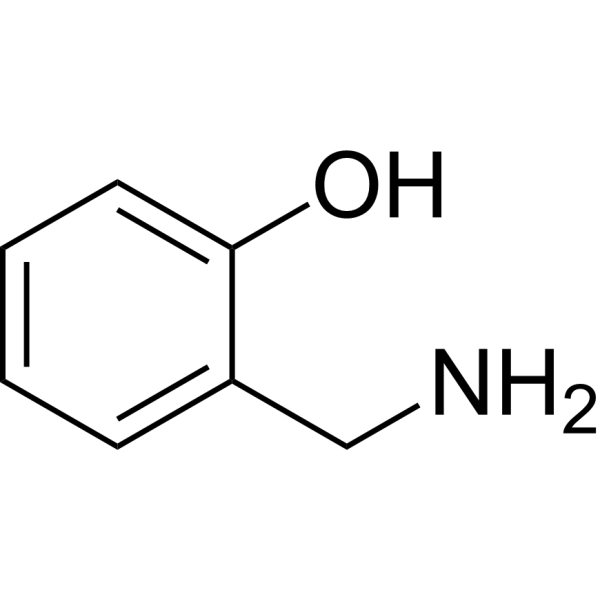
2-Hydroxybenzylamine
CAS No. 932-30-9
2-Hydroxybenzylamine( —— )
Catalog No. M28366 CAS No. 932-30-9
2-Hydroxybenzylamine, a potent small molecule scavenger of IsoLGs, sequesters the reactive species as inert adducts.
Purity : >98% (HPLC)
 COA
COA
 Datasheet
Datasheet
 HNMR
HNMR
 HPLC
HPLC
 MSDS
MSDS
 Handing Instructions
Handing Instructions
| Size | Price / USD | Stock | Quantity |
| 500MG | 51 | In Stock |


|
| 1G | 82 | In Stock |


|
Biological Information
-
Product Name2-Hydroxybenzylamine
-
NoteResearch use only, not for human use.
-
Brief Description2-Hydroxybenzylamine, a potent small molecule scavenger of IsoLGs, sequesters the reactive species as inert adducts.
-
Description2-Hydroxybenzylamine, a potent small molecule scavenger of IsoLGs, sequesters the reactive species as inert adducts. 2-Hydroxybenzylamine may be used to decrease early recurrence of atrial fibrillation and other atrial arrhythmias following atrial fibrillation ablation by decreasing IsoLG adducts with native biomolecules.(In Vivo):Compared to hypercholesterolemic Ldlr-/- mice treated with vehicle or 4-Hydroxybenzylamine, a nonreactive analogue, 2-Hydroxybenzylamine decreases atherosclerosis by 60% in en face aortas, without changing plasma cholesterol. Ldlr-/- mice treated with 2-Hydroxybenzylamine have reduced MDA-LDL and MDA-HDL levels, and their HDL display increased capacity to reduce macrophage cholesterol. Importantly, 2-Hydroxybenzylamine reduces the MDA- and IsoLG-lysyl content in atherosclerotic aortas versus 4-Hydroxybenzylamine. Furthermore, 2-Hydroxybenzylamine reduces inflammation and plaque apoptotic cells and promotes efferocytosis and features of stable plaques. Dicarbonyl scavenging with 2-Hydroxybenzylamine has multiple atheroprotective effects in a murine FH model.
-
In Vitro——
-
In Vivo——
-
Synonyms——
-
PathwayOthers
-
TargetOther Targets
-
RecptorSIRT1
-
Research Area——
-
Indication——
Chemical Information
-
CAS Number932-30-9
-
Formula Weight123.155
-
Molecular FormulaC7H9NO
-
Purity>98% (HPLC)
-
SolubilityIn Vitro:?DMSO : 50 mg/mL (406.01 mM)
-
SMILESNCc1ccccc1O
-
Chemical Name——
Shipping & Storage Information
-
Storage(-20℃)
-
ShippingWith Ice Pack
-
Stability≥ 2 years
Reference
1.Arunasree M Kalle, et al. Inhibition of SIRT1 by a small molecule induces apoptosis in breast cancer cells. Biochem Biophys Res Commun. 2010 Oct 8;401(1):13-9.
molnova catalog



related products
-
Phenetole
Phenetole is used as an analyte to determine the properties of porous graphite carbon (PGC) particles.
-
α-Guanidinoglutaric ...
α-Guanidinoglutaric Acid is found in cobalt-induced epileptogenic focus tissue in the cerebral cortex of cats.
-
Etelcalcetide hydroc...
Etelcalcetide hydrochloride (AMG 416 hydrochloride) is a synthetic peptide as an allosteric modulator of the calcium (Ca)-sensing receptor (CaSR). Etelcalcetide hydrochloride is effective in lowering parathyroid hormone (PTH) concentrations in patients receiving dialysis with secondary hyperparathyroidism receiving hemodialysis.



 Cart
Cart
 sales@molnova.com
sales@molnova.com


